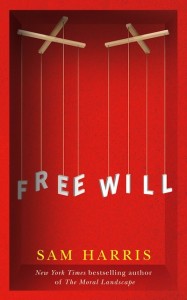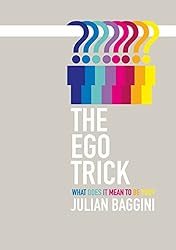I read Eckhart Tolle’s classic The Power of Now in August of 2010. My usual practice for books like this is to highlight passages I find interesting and share them here. I highlighted so many parts of this book, I never go around to it. If you haven’t read the book, the lack of context will make most of these seem, well, just weird. I can assure you everyone line has been valuable to me.
nothing I ever did could possibly add anything to what I already had.
Self = a fiction of the mind
You have it already. You just can’t feel it because your mind is making too much noise.
the knower in you who dwells behind the thinker
All I can do is remind you of what you have forgotten.
Not to be able to stop thinking is a dreadful affliction.
You believe that you are your mind. This is the delusion.
The beginning of freedom is the realization that you are not the possessing entity — the thinker. Knowing this enables you to observe the entity. The moment you start watching the thinker, a higher level of consciousness becomes activated. You then begin to realize that there is a vast realm of intelligence beyond thought, that thought is only a tiny aspect of that intelligence. You also realize that all the things that truly matter — beauty, love, creativity, joy, inner peace — arise from beyond the mind. You begin to awaken.
The voice isn’t necessarily relevant to the situation you find yourself in at the time; it may be reviving the recent or distant past or rehearsing or imagining possible future situations. Here it often imagines things going wrong and negative outcomes; this is called worry. This is because the voice belongs to your conditioned mind.
“watching the thinker” — listen to the voice in your head, be there as the witnessing presence. … The thought then loses its power over you and quickly subsides, because you are no longer energizing the mind through identification with it.
aware but not thinking. This is the essence of meditation.
Because you are identified with it … you derive your sense of self from the content and activity of your mind. Because you believe that you would cease to be if you stopped thinking.
(Ego) a false self, created by unconscious identification with the mind. (It) can only be kept going through constant thinking.
Even when the ego seems to be concerned with the present, it is not the present that it sees: It misperceives it completely because it looks at it through the eyes of the past. Or it reduces the present to a means to an end, an end that always lies in the mind-projected future. The present moment holds the key to liberation. But you cannot find the present moment as long as you are your mind.
Thinking and consciousness are not synonymous. Thinking is only a small aspect of consciousness. Thought cannot exist without consciousness, but consciousness does not need thought.
The mind is essentially a survival machine. It is not at all creative.
Emotion (is) the body’s reaction to the mind.
If there is an apparent conflict between them, the thought will be the lie, the emotion will be the truth.
You will not be free of pain until you cease to derive your sense of self from identification with the mind, which is to say from ego.
Glimpses of love and joy or brief moments of deep peace are possible whenever a gap occurs in the stream of thought. Usually, such moments are short-lived, as the mind quickly resumes its noise-making activity that we call thinking.
Pleasure is always derived from something outside you, whereas joy arises from within.
Become present. Be there as the observer of the mind.
The pain that you create now is always some form of nonacceptance, some form of unconscious resistance to what is.
The mind always seeks to deny the Now and to escape from it. In other words, the more you are identified with your mind, the more you suffer.
Time and mind are in fact inseparable. … The mind, to ensure that it remains in control, seeks continuously to cover up the present moment with past and future,
Unconscious = a complete absence of the watcher.
You can always cope with the present moment, but you cannot cope with something that is only a mind projection — you cannot cope with the future.
ultimately all fear is the ego’s fear of death,
End the delusion of time. Time and mind are inseparable. Remove time from the mind and it stops
Nothing ever happened in the past; it happened in the Now.
Nothing will ever happen in the future; it will happen in the Now.
In the Now, in the absence of time, all your problems dissolve.
The moment you realize you are not present, you are present. Whenever you are able to observe your mind, you are no longer trapped in it.
Usually, the future is a replica of the past.
Ultimately, this is not about solving your problems. It’s about realizing that there are no problems. Only situations — to be dealt with now, or to be left alone and accepted as part of the “isness” of the present moment until they change or can be dealt with. Problems are mind-made and need time to survive. They cannot survive in the actuality of the Now.
it is impossible to have a problem when your attention is fully in the Now
The mind unconsciously loves problems because they give you an identity of sorts
Everything is honored, but nothing matters.
To complain is always nonacceptance of what is. … leave the situation or accept it. All else is madness.
Die to the past every moment. You don’t need it. Only refer to it when it is absolutely relevant to the present.
You can always cope with the Now, but you can never cope with the future — nor do you have to. The answer, the strength, the right action or the resource will be there when you need it, not before, not after.
Eternity does not mean endless time, but no time.
Being cannot become an object of knowledge.
You are cut off from Being as long as your mind takes up all your attention. When this happens — and it happens continuously for most people — you are not in your body. The mind absorbs all your consciousness and transforms it into mind stuff. You cannot stop thinking. Compulsive thinking has become a collective disease. Your whole sense of who you are is then derived from mind activity
Feeling will get you closer to the truth of who you are than thinking.
As there is more consciousness in the body, its molecular structure actually becomes less dense. More consciousness means a lessening of the illusion of materiality.
when presence becomes your normal mode of consciousness and past and future no longer dominate your attention, you do not accumulate time anymore in your psyche and in the cells of the body. The accumulation of time as the psychological burden of past and future greatly impairs the cells’ capacity for self-renewal.
see yourself surrounded by light or immersed in a luminous substance — a sea of consciousness. Then breathe in that light. Feel that luminous substance filling up your body and making it luminous also.
nothing in this world is so like God as silence
You “get” there by realizing that you are there already. You find God the moment you realize that you don’t need to seek God.
the moment that judgment stops through acceptance of what is, you are free of the mind.
Ego is the unobserved mind that runs your life when you are not present as the witnessing consciousness, the watcher.
You cannot have an argument with a fully conscious person.
The whole advertising industry and consumer society would collapse if people became enlightened and no longer sought to find their identity through things.
every moment — is the best. That is enlightenment.
there is no objective world out there. Every moment, your consciousness creates the world that you inhabit.
Only those who have transcended the world can bring about a better world.
who you are is always a more vital teaching and a more powerful transformer of the world than what you say, and more essential even than what you do.
to surrender is to accept the present moment unconditionally and without reservation.
You are walking along a path at night, surrounded by a thick fog. But you have a powerful flashlight that cuts through the fog and creates a narrow, clear space in front of you. The fog is your life situation, which includes past and future; the flashlight is your conscious presence; the clear space is the Now.
Surrender does not transform what is, at least not directly. Surrender transforms you. When you are transformed, your whole world is transformed, because the world is only a reflection.
The amazing and incomprehensible fact is not that you can become conscious of God but that you are not conscious of God.


 We all tend to think there’s a connection between the four-year-old child on our first day of school and us now. What makes us the same is we believe we’re the same. Sense of self over time is therefore the story that we tell ourselves that keeps us together. pg 39
We all tend to think there’s a connection between the four-year-old child on our first day of school and us now. What makes us the same is we believe we’re the same. Sense of self over time is therefore the story that we tell ourselves that keeps us together. pg 39